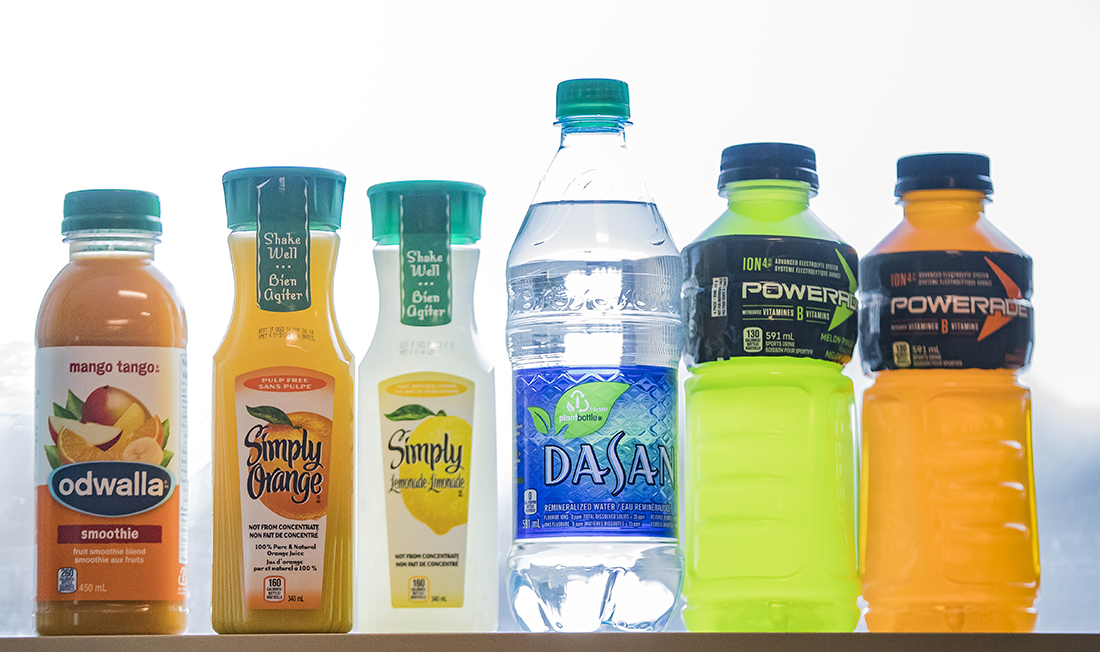
Hydration Critical for Performance and Health
As summer approaches and we head into warmer temperatures, hydration is a key component for active living.
Water may be the most neglected nutrient for athletes. This is probably not a surprise when you consider that at least 60% of the human body consists of water, i.e., 102 lbs of water in a 170 lbs athlete (46 kg of water in 77 kg athlete). The more muscular the athlete the greater their water contribution; muscle alone consists of approximately 80% water content!
Athletes mainly lose water as sweat during exercise, but digestion and breathing can also account for some fluid losses. The harder athletes work, the higher their core temperature and the greater amount of sweat lost to get rid of muscular heat. An estimation of fluid losses during training requires a calculation of body weight changes: subtract the post-exercise weight from the pre-exercise weight. Then add in the amount of fluid consumed and for a given workout an athlete’s fluid losses (i.e., sweat) can be approximated.
For example, pre-exercise weight 70 kg minus post-exercise weight of 68 kg means 2 kg was lost. If the athlete drank 1 Litre of fluids then we also add 1 kg of weight to this deficit (i.e., 1 L of sweat = 1 kg weight). In this example the total fluid lost would be approximately 3 kg (assuming the athlete did not “void” during exercise). Sweat rates can easily range from minimal up to more than 2 Litres in an hour, but on “average” athletes lose about 1 L per hour.
Dehydration (technically referred to as “hypohydration”) is defined when an athlete loses more than 3% of their pre-exercise body weight, i.e., lose > 2.1 kg for 70 kg athlete. Severe dehydration reflects greater than 8% of body weight lost during exercise, i.e., lose > 5.6 kg for 70 kg athlete.
While dehydration may present with symptoms of muscle cramping and/or headaches, there are several negative effects from dehydration on physical performance, such as:
- decreased cardiac output (less blood pumped from the heart to exercising muscles)
- impaired cognitive function & decreased mental focus
- decreased power output, decreased strength, slower reaction time, and decreased endurance
The latest research suggests that “thirst” is an indication that an athlete needs to drink - it does NOT mean that the athlete is necessarily dehydrated!
When we sweat we are losing more than just water - sweat also contains several essential minerals such as sodium, potassium, magnesium, calcium, iron, zinc and other trace minerals. Sodium is the main mineral in sweat therefore athletes will frequently consume sodium in sport drinks and/or add electrolyte/salt tablets to their exercise fluids to help replenish this mineral. The presence of sodium in the athlete’s beverage will also help to retain more water, improve the palatability of the beverage and possibly increase fluid consumption.
Although fluid needs can be a complex situation for athletes, the following simple steps may help reduce the risk of dehydration during exercise:
- drink 500 ml (2 cups) 2 hours before exercising
- drink between 400 to 800 ml for every hour of activity (consider a sodium source in the beverage)
- effectively rehydrate by sipping 750 ml for every 0.5 kg (1 lb) lost from exercise (count any beverage but not alcohol!)
For more information on Fuel for Gold’s menu for active living: http://fuelforgold.com/menu-and-catering